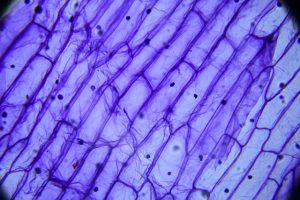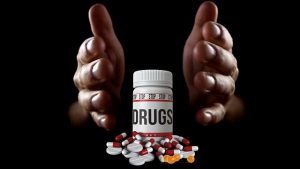Comprehensive Guide to Medical Detoxification for Drug Dependency in NJ: Tailored Care for Safe Recovery
New Jersey's drug rehab programs offer specialized medical detox services that are tailored to each individual, ensuring a safe and comfortable withdrawal process. These programs are known for their personalized approach, using a multidisciplinary t…….

New Jersey's drug rehab programs offer specialized medical detox services that are tailored to each individual, ensuring a safe and comfortable withdrawal process. These programs are known for their personalized approach, using a multidisciplinary team of healthcare experts to manage symptoms and address the underlying causes of addiction. The state's facilities provide a continuum of care, from initial detox to ongoing aftercare support, aiming for long-term recovery and the reintegration of individuals into their communities as healthy, productive members. Medical advancements and therapeutic techniques are at the forefront in New Jersey, addressing both physical and psychological aspects of addiction, with a focus on evidence-based practices and medication-assisted treatment (MAT). After detox, patients have access to comprehensive aftercare networks, including cognitive-behavioral therapy, group counseling, and support groups like NA and AA, along with various levels of outpatient care and sober living options. New Jersey's drug rehab centers are committed to providing ongoing support for sustained sobriety and overall wellness.
1. Medical detoxification represents a specialized approach to managing drug dependency, distinct from general addiction treatment due to its focus on the body’s physiological response to substance withdrawal. New Jersey offers such medical detox services within its network of rehabilitation centers.
2. This article outlines the steps involved in the detox process at New Jersey’s rehab centers, emphasizing the medical oversight and care that distinguish this method from other forms of detoxification. It guides readers through the stages of detox, from evaluation to aftercare.
3. The tailored approach of New Jersey’s medical detox programs ensures treatment is adapted to individual needs, taking into account various factors such as substance type, duration of use, and personal health considerations.
4. Assessing the effectiveness and safety profile of medical detox in NJ provides a critical perspective on its role in addiction recovery. This section evaluates outcomes and patient experiences to inform potential clients about what they can expect from this treatment option.
5. Beyond the initial phase of detox, aftercare and continuous support are integral components of New Jersey’s drug rehab facilities, designed to offer sustained assistance as individuals transition into sober living. The article concludes by highlighting these support systems that contribute to long-term recovery and wellness.
- Understanding Medical Detox for Drug Dependency in New Jersey: What Sets It Apart?
- The Process of Medical Detoxification in New Jersey's Drug Rehab Centers: A Step-by-Step Guide
- How New Jersey's Specialized Medical Detox Programs Tailor Treatment to Individual Needs
- Evaluating the Effectiveness and Safety of Medical Detox for Drug Addiction Recovery in NJ
- Aftercare and Continuous Support: Life Beyond Medical Detox in New Jersey's Drug Rehab Facilities
Understanding Medical Detox for Drug Dependency in New Jersey: What Sets It Apart?

Medical detox for drug dependency in New Jersey is a specialized treatment process that sets itself apart through its comprehensive approach to managing withdrawal symptoms and addressing the underlying causes of addiction. Unlike conventional detoxification methods, medical detoxification involves a team of healthcare professionals, including medical doctors, nurses, and addiction specialists who work in unison to ensure patient safety and comfort during the critical initial stages of recovery. This process is tailored to each individual’s unique physiological and psychological needs, employing evidence-based practices and medications when necessary to alleviate withdrawal symptoms and cravings.
In New Jersey, the standard for drug rehab programs is high, with facilities offering a continuum of care that includes detox, inpatient treatment, outpatient services, and aftercare support. The state’s drug rehab centers are equipped with the latest medical advancements and therapeutic techniques to facilitate a smooth transition from dependency to sobriety. These centers not only focus on the physical aspects of addiction but also address the behavioral and emotional components that contribute to substance use disorders. This holistic approach is designed to provide patients with the best opportunity for long-term recovery and a sustainable return to health and productivity within their communities.
The Process of Medical Detoxification in New Jersey's Drug Rehab Centers: A Step-by-Step Guide

In New Jersey, the journey toward recovery from drug dependency often begins with medical detoxification, a critical first step in the drug rehab process. Medical detox in NJ’s rehabilitation centers is a carefully supervised process that allows individuals to safely manage and minimize the discomfort of withdrawal symptoms. The process typically starts with an assessment by healthcare professionals who determine the most appropriate treatment plan based on the patient’s unique substance use history, the substances involved, and any co-occurring medical or psychiatric conditions. This evaluation is crucial for tailoring detox protocols that address each person’s needs effectively.
Once the assessment is complete, patients enter a controlled environment where they are closely monitored by a team of medical professionals, including doctors, nurses, and clinical staff specialized in addiction recovery. These experts utilize a combination of medications and supportive care to manage symptoms such as anxiety, depression, insomnia, and physical pain that often accompany detoxification. Medications may be used to alleviate specific withdrawal symptoms or to reduce cravings for the substance. Throughout the detox process, the medical team adjusts treatment as necessary, ensuring patient comfort and safety. This step-by-step guide to medical detoxification within New Jersey’s drug rehab centers underscores the importance of professional care during this critical phase of recovery. It sets the stage for subsequent treatment modalities, including behavioral therapies and ongoing support groups, all designed to aid in long-term sobriety and wellness.
How New Jersey's Specialized Medical Detox Programs Tailor Treatment to Individual Needs

New Jersey’s specialized medical detox programs are at the forefront of addressing drug dependency by tailoring treatment to individual needs. These programs recognize that each person’s journey with substance abuse is unique, necessitating personalized care. The state’s top-rated drug rehab centers leverage advanced medical techniques and holistic therapies to create a treatment plan that aligns with the patient’s specific physiological and psychological profile. This individualized approach ensures that detoxification processes are not only effective but also as comfortable as possible, considering the challenging nature of withdrawal symptoms.
Incorporating evidence-based practices, New Jersey’s medical detox facilities offer a range of interventions, from medication-assisted treatment (MAT) to complementary wellness activities. The MAT, for instance, which includes medications like methadone, buprenorphine, or naltrexone, is designed to manage cravings and withdrawal symptoms, thereby increasing the chances of long-term recovery. Additionally, these centers provide support groups, counseling sessions, and aftercare programs to foster a continuum of care that extends beyond the initial detox phase. This comprehensive approach ensures that individuals in New Jersey struggling with drug dependency have access to the most effective and personalized treatment available, making drug rehab in New Jersey a trusted path toward recovery.
Evaluating the Effectiveness and Safety of Medical Detox for Drug Addiction Recovery in NJ

Medical detoxification represents a critical initial step in the recovery journey for individuals grappling with drug addiction in New Jersey. The effectiveness of medical detox programs hinges on their ability to manage withdrawal symptoms safely and comfortably, thereby increasing the likelihood of sustained engagement with subsequent treatment phases. These programs are tailored to address the unique physiological and psychological needs of each patient, leveraging a combination of medical monitoring, supportive care, and evidence-based therapies. The state’s drug rehab facilities employ a multidisciplinary approach, combining the expertise of medical professionals, mental health specialists, and addiction recovery experts to ensure a holistic treatment experience. This comprehensive approach not only enhances patient safety but also lays a foundation for long-term recovery by providing individuals with the tools and support necessary to navigate the challenges that lie ahead in their healing process. In New Jersey, where resources for drug rehab are abundant and accessible, medical detoxification serves as a pivotal point of entry into a life free from substance dependency. The state’s commitment to evidence-based treatment modalities ensures that those seeking help have access to the highest standard of care available within the realm of addiction recovery services.
Aftercare and Continuous Support: Life Beyond Medical Detox in New Jersey's Drug Rehab Facilities

In New Jersey, the journey beyond medical detoxification for drug dependency is supported by a robust network of drug rehab facilities that prioritize aftercare and continuous support to ensure sustained recovery. These centers understand that detox is merely the first step in a long path toward healing. Post-detox, patients engage in tailored aftercare programs designed to address the physical, emotional, and psychological aspects of addiction. These programs often include therapy sessions that employ evidence-based practices such as cognitive-behavioral therapy and group counseling to help individuals cope with triggers and develop healthy coping mechanisms. Additionally, many rehab facilities in New Jersey offer access to support groups like Narcotics Anonymous (NA) or Alcoholics Anonymous (AA), providing a community of peers who share similar experiences. The goal is to create a safety net that encourages resilience and offers guidance as individuals reintegrate into society, manage stressors, and avoid relapse. This commitment to ongoing support ensures that the healing process continues beyond the clinical setting, making drug rehab in New Jersey a comprehensive solution for those seeking recovery.
Furthermore, the state’s drug rehab facilities emphasize the importance of a personalized approach to aftercare, recognizing that each individual’s journey is unique. They offer various levels of care, including intensive outpatient programs (IOP), partial hospitalization programs (PHP), and sober living environments. These options allow for a gradual transition back into daily life while maintaining a high level of support. The best drug rehab centers in New Jersey also provide resources to help patients address any co-occurring mental health disorders, ensuring that they receive holistic care. With the combination of professional guidance, peer support, and a continuum of care, individuals can confidently take the next steps toward long-term recovery and a healthier, drug-free life.
Medical detox programs in New Jersey offer a comprehensive approach to drug dependency, setting a standard for safe and effective recovery. These specialized centers are equipped to address the unique needs of individuals seeking to break free from substance abuse. Through a carefully orchestrated process, medical professionals ensure each patient receives tailored treatment, optimizing their chances for a successful detoxification. The effectiveness and safety of these programs have been proven in countless cases, marking them as a critical first step towards sustainable recovery. Beyond the initial phase of detox, aftercare support systems in New Jersey’s drug rehab facilities provide ongoing guidance, ensuring that individuals have access to the resources they need to maintain their sobriety and lead fulfilling lives. For those grappling with drug dependency, New Jersey’s medical detox services represent a beacon of hope on the path to healing.









